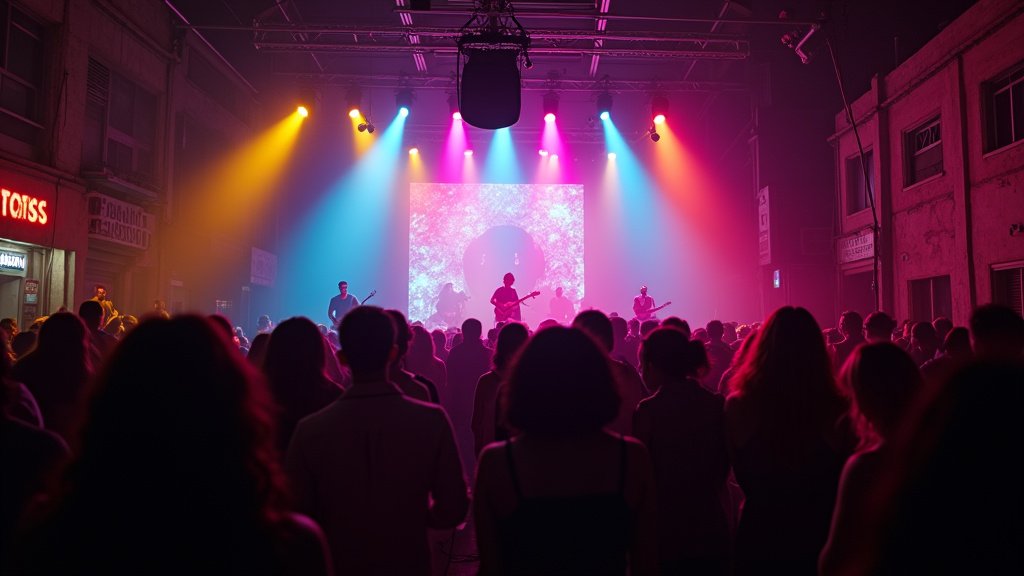Multiple municipalities across Southern California have announced the cancellation or postponement of their planned 4th of July celebration events, citing heightened safety concerns for residents amidst ongoing federal immigration enforcement activities. The decisions reflect a growing climate of anxiety within communities, particularly among immigrant and mixed-status families, who are reportedly withdrawing from public life due to increased U.S. Immigration and Customs Enforcement (ICE) presence and operations.
Community Safety Concerns Trigger Cancellations
The wave of cancellations underscores the significant impact that federal immigration policies and enforcement tactics are having on local communities and public gatherings. City officials in several areas have explicitly linked the decision to curtail public events to the need to protect residents from potential encounters with immigration agents during large assemblies. The atmosphere of fear and uncertainty has prompted a re-evaluation of the feasibility of hosting open-air celebrations designed to draw large crowds.
Residents in areas with high immigrant populations are reportedly experiencing widespread anxiety. This apprehension is leading some to avoid public spaces and community events, a phenomenon local leaders say undermines the spirit of communal celebration inherent in Independence Day festivities.
Specific City Responses
The city of Bell Gardens has implemented one of the most extensive cancellations, announcing that all city events through July 10 are being called off. This includes a planned concert on July 3 and a movie screening scheduled for July 10. City officials stated the decision was made “out of an abundance of caution regarding concerns for resident safety over federal immigration enforcement activities.” The broad scope of these cancellations highlights the perceived level of risk to residents attending any public function hosted by the city during this period.
In Boyle Heights, the 4th of July celebrations sponsored by Council District 14 have been postponed. According to reports, this decision was reached after Councilmember Ysabel Jurado’s office engaged in discussions with local neighborhood councils and stakeholders. The councilmember’s office issued a statement indicating they are “responding to the crisis with the presence of federal agents in the community,” acknowledging the immediate impact of enforcement activities on community well-being and public safety during gatherings.
The city of Cudahy has also postponed its planned Independence Day Celebration, originally set for Thursday, July 3rd, 2025. (Note: While the current context is 2024 events, the official date provided for the Cudahy postponement is Thursday, July 3rd, 2025). A city statement cited “recent events and concerns regarding the safety of our residents” as the reason for the postponement. The reference to “recent events” is widely understood in the local context to pertain to the increased immigration enforcement presence and its effect on community members’ sense of security.
Further west, in Downtown Los Angeles, the popular Summer Block Party held at Gloria Molina Grand Park has been postponed indefinitely. While the specific reasoning articulated for this particular event’s postponement may encompass a broader range of factors, its timing aligns with the trend of other cancellations occurring across the region due to safety and attendance concerns linked to the prevailing climate.
Impact on Community Life
The cancellations disrupt long-standing traditions and community gatherings that serve to unite residents and provide opportunities for shared civic celebration. For cities with significant immigrant populations, these events are often vital for fostering social cohesion and providing accessible, family-friendly entertainment. The decision to cancel or postpone, while presented as a measure to protect residents, also inadvertently limits opportunities for community engagement and expression.
The public statements from city officials reflect a direct response to the expressed fears and anxieties of their constituents. Local governments find themselves navigating complex challenges, balancing the desire to host celebratory events with the responsibility to ensure the physical and emotional safety of all residents in the face of federal enforcement actions that operate independently of municipal control.
The situation in Southern California mirrors broader discussions nationally about the effects of immigration enforcement on civil liberties, community trust, and the ability of individuals and families to participate fully in public life. The postponement of Independence Day celebrations, a holiday centered on themes of freedom and community, due to fears related to government presence, highlights the tensions and anxieties prevalent in certain areas.
City leaders continue to monitor the situation and assess potential future dates for postponed events, but the immediate focus remains on addressing community concerns and ensuring resident safety. The cancellations serve as a tangible indicator of how federal policies can have significant, direct impacts on the ground, affecting everything from individual routines to large-scale public festivities.





